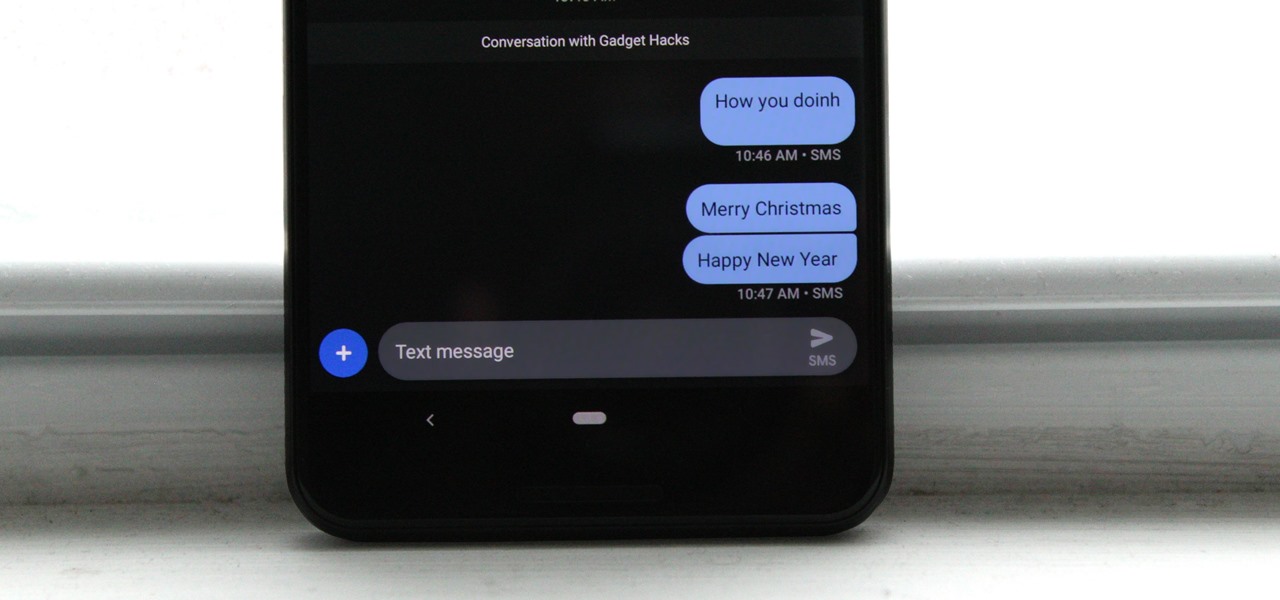
Introduction
In today's digital age, how we interact with our devices has become increasingly important. One significant advancement is the integration of Dark Mode into various applications, including messaging apps like Samsung Messages. Dark Mode not only enhances the aesthetic appeal of your device but also offers several practical benefits such as improved battery life, reduced eye strain, and increased privacy. This article will guide you through the process of enabling Dark Mode on Samsung Messages, along with additional tips and troubleshooting steps to ensure you get the most out of this feature.
Necessary Conditions and Device Compatibility
Before diving into the steps to enable Dark Mode, understanding the necessary conditions and device compatibility is crucial. Here are the key requirements:
Android Version
Your device must run on Android 9.0 (Pie) or later. Dark Mode is integrated into the Samsung One UI interface, available on newer Android versions.
Samsung One UI
Ensure your device has the Samsung One UI interface. Dark Mode is a core feature of One UI. Devices like the Galaxy S10, S20, Note 10, Note 20, A50, A70, and newer models typically come with One UI.
Samsung Messages App
Make sure your Samsung Messages app is updated to the latest version. Check for updates by visiting the Google Play Store or Galaxy Store. An outdated app might not have the Dark Mode option.
Storage Space and Battery Life
While not strict requirements, having sufficient storage space and battery life ensures smooth operation when enabling new features.
System-Wide Dark Mode
Ensure your device settings allow for system-wide Dark Mode. This can be found in Settings > Display > Dark Mode. If your device supports system-wide Dark Mode, the Samsung Messages app will automatically switch to Dark Mode when this setting is enabled.
Steps to Enable Dark Mode on Samsung Messages
Now that the necessary conditions and device compatibility are covered, let's move on to the steps required to enable Dark Mode on Samsung Messages:
- Open Samsung Messages: Start by opening the Samsung Messages app on your device.
- Access Settings: Tap the three vertical dots in the top-right corner of the screen to access the menu.
- Select Settings: From the dropdown menu, select "Settings."
- Choose Backgrounds or Display: Depending on your version of Samsung Messages, you might see either "Backgrounds" or "Display." Choose the appropriate option.
- Toggle Dark Mode: Look for the switch next to "Dark Mode" and toggle it on. Alternatively, if you see "Dark" as an option, select it.
- Confirm Your Choice: If prompted, confirm your choice to apply the changes.
Tips for Using Dark Mode in Samsung Messages
Once Dark Mode is enabled on Samsung Messages, here are some additional tips to help you get the most out of this feature:
Enable Dark Mode
As mentioned earlier, open Samsung Messages, tap the three dots in the top right corner, select "Settings," choose "Backgrounds," and pick "Dark."
Battery Saver
Dark mode uses less power on OLED screens, which can extend battery life. Keep Dark Mode on to save battery life.
Eye Comfort
Reduces eye strain in low light environments. Activate Dark Mode during nighttime or in dim environments to reduce eye strain.
Customization
Combine Dark Mode with other themes to personalize your device according to your style.
Reading
Easier on the eyes for long texts. Switch to Dark Mode when reading lengthy messages for better readability.
Privacy
Dark Mode can make your screen less visible to others in public places, providing added privacy.
Consistency
Sync Dark Mode with other apps to create a uniform look across your device.
Automatic Schedule
Set Dark Mode to turn on automatically at specific times of the day or night by going to settings and choosing "Dark mode settings."
Contrast
Dark Mode can improve text contrast, making it easier to read in bright light environments.
Focus
Helps reduce distractions by providing a less cluttered interface. Use Dark Mode to stay focused on your messages.
Health
Reduces blue light exposure, which can help maintain a healthy sleep cycle by activating Dark Mode before bedtime.
Troubleshooting Dark Mode Issues
While enabling Dark Mode is straightforward, there might be instances where you encounter issues. Here are some common problems and their solutions:
Device Not Supporting Dark Mode
Solution: Ensure your device meets the necessary conditions mentioned earlier (Android 9.0 or later, One UI, latest Samsung Messages app, and system-wide Dark Mode enabled).
Samsung Messages App Not Updated
Solution: Visit the Google Play Store or Galaxy Store and check for updates. Update the app to the latest version if available.
Insufficient Storage Space
Solution: Clear some space by deleting unused apps or files. This will ensure your device has enough storage space for updates and smooth operation.
Battery Life Issues
Solution: If you notice that enabling Dark Mode is affecting battery life, consider adjusting other power-saving settings on your device.
System-Wide Dark Mode Not Enabled
Solution: Go to Settings > Display > Dark Mode and toggle the switch next to it on.
Custom Themes Not Working
Solution: Some older models might not support custom themes due to hardware limitations. If you're using an older device, consider upgrading to a newer model that supports custom themes.
Dark Mode Not Applying Automatically
Solution: Ensure system-wide Dark Mode is enabled in your device settings. If it's not applying automatically, try toggling it off and on again in the Samsung Messages app settings.
By following these steps and tips, you can effectively enable Dark Mode on Samsung Messages and enhance your overall user experience. Whether you're looking to improve battery life, reduce eye strain, or simply personalize your device's appearance, Dark Mode is an essential feature that every Android user should explore.
